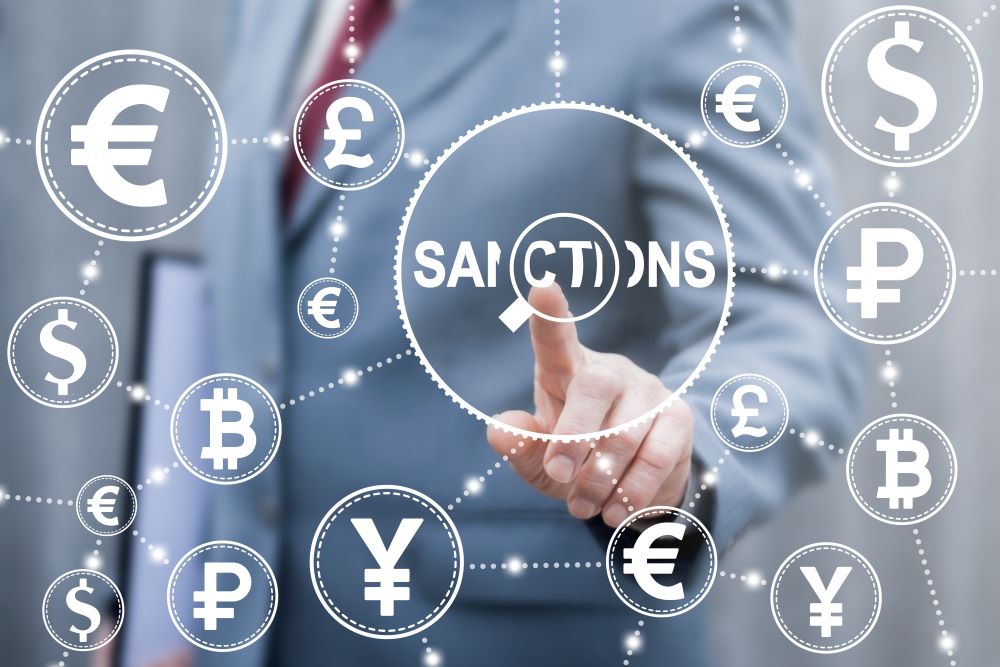
In this latest version of the IOE&IT Daily Update’s sanctions round-up, we cover reports that the EU is plotting a fresh round of restrictions against Russia, the first set of punishments for breaching the oil-cap and US lifting of some sanctions against Venezuela in exchange for free elections.
EU sanctions
The EU is expected to open consultations on a new sanctions package against Russia.
Bloomberg reports that the EU will work with both member states and allied G7 nations to implement a 12th package of sanctions on the state.
This move is expected to expand the list of restricted items that could be used by Russia’s military in its invasion of Ukraine.
The package, which was reportedly proposed by Poland, will also include further restrictions on diamonds, as well as list companies outside of the EU that are thought to be helping Moscow circumvent sanctions.
There is also said to be a discussion of enforcement of the oil price cap, agreed to between the EU and G7 allies.
Oil cap sanctions
Earlier this month (12 October), the US treasury department announced that it had hit two companies with sanctions for beach of the price cap, insisting that it remained committing to supporting Ukraine even as the ongoing Israel-Hamas war threatened to knock Russia’s invasion off the front page.
“Today’s action demonstrates our continued commitment to reduce Russia’s resources for its war against Ukraine and to enforce the price cap,” said deputy treasury secretary Wally Adeyemo.
This is reportedly the first set of sanctions for breach of the price cap, which was imposed by the G7 and allied nations in December 2022.
Mint reports that the US treasury is also checking whether foreign banks operating in the US are conforming to the G7 price cap, citing an anonymous source.
As reported previously by the Daily Update, the cap limits signatories from spending more than US$60 per barrel of oil.
So far, the cap has been described as mostly “symbolic” since crude remains Moscow’s principal source of income and the price of oil traded below the price cap for much of its time in operation.
Venezuela election deal
The US has agreed to ease some sanctions on Venezuela after a deal was struck that would see a free and fair election in the Latin American nation sometime next year.
While general licences would be granted for oil, gold and gas, sanctions on other goods remain in place and the deal could be reversed at any time, according to the BBC.
Venezuela has long been the subject of international sanctions, imposed partly for human rights abuses and corruption, with former US president Donald Trump imposing harsh controls after president Nicolás Maduro’s 2018 re-election that was condemned by observers as fraudulent.
The deal would see a free and fair election, monitored by international observers, between the incumbent president Maduro and a representative from the opposition coalition. This is expected to be former legislator Maria Corina Machado, after primary elections held Monday (23 October).
Splash24/7 reports that analysts expected Venezuela oil exports to shift from the so-called ‘dark fleet’ of expensive and outdated ships used to circumvent sanctions and move to more traditional tankers and very large crude container vessels.
Kazakhstan
Kazakhstan, a central Asian nation that is seen as an important regional Russian ally, has insisted that it would not help Moscow circumvent sanctions.
A Russian independent news website, The Moscow Times, reports that German chancellor Olaf Scholz met with Kazakhstan president Kassym-Jomart Tokayev in Berlin last month (28 September).
There, Tokayev said that his country has “unambiguously stated that it will follow the sanctions regime”.
"We have contacts with the relevant organisations to comply with the sanctions regime, and I think there should not be any concerns on the German side about possible actions aimed at circumventing the sanctions regime."
Reuters reports that the central Asian leader also said he was ready to increase his country’s oil exports to Germany, possibly making Germany independent of Russian energy imports.
Kazakhstan has distanced itself from Russia since the invasion of Ukraine, but is still an economic and military ally.
The last set of EU sanctions targeted the re-export of controlled goods by third-party nations, with some sources suggesting that these could be targeted at central Asian nations like Kazakhstan.
Third IOE&IT SIG announced
The Institute of Export & International Trade (IOE&IT) has announced the topic of its next special interest group (SIG) meeting.
This session will cover US sanctions, and will feature guidance from subject matter experts on the importance of keeping compliant with the US enforcement regime.
The meeting will also feature presentations from US lawyers George Grammas, partner at Squire Patton Bogs, and Brad Kabanuk, founder and president of Content Enablers.
The meeting is being held next Tuesday (31 October).
IOE&IT members can sign up here.



